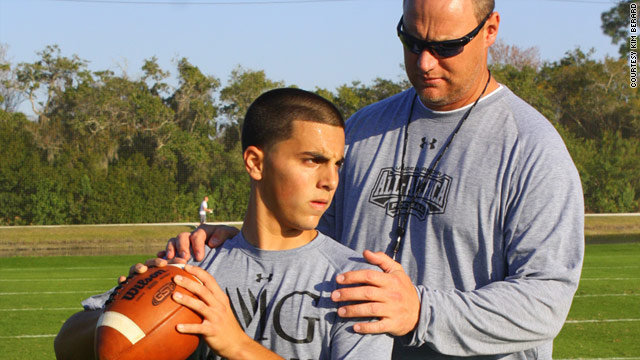
By James Leath
“STOP LOOKING AT YOUR PHONE!” yells Tasha, a point guard on the 6th grade YMCA basketball team I was coaching.
Immediately, I smile and start to explain to her that I forgot my watch and I needed to make sure we were on schedule. Tasha rolled her eyes, clearly unimpressed with my response.
“No big deal,” I had thought to myself on the way to practice when I realized I forgot my watch, “I’ll use my phone.” Fifteen minutes into practice, I had pulled out my phone to make sure we were on schedule. Big mistake.
“Can you believe the nerve of that girl?” I thought. “Here I am, the volunteer head coach, staying up late watching videos on drills and strategy, planning practices on my lunch break, staying late for players who parents are delayed picking up their child…and now some kid is telling me to put my phone away when all I am doing is making sure practice is on schedule?”
Reflecting back on that practice later that night, though, I asked myself what did Tasha really want? What was she really asking for?
I realized that she was looking for the one thing kids crave more than anything else. She wanted me to be there, in that moment, in that drill, watching her and her teammates. She wanted my attention.
She didn’t simply want me to care for her, or love her, or teach her how to play the game. She wanted more.
She wanted me to see her!
Have you ever seen the movie Avatar? During the film, the Na’vi race express their affection for each other not by saying “I love you,” but by saying, “I see you.” Isn’t that beautiful? Isn’t that how we should coach our athletes? We can love someone and still be less than present at times. But to “see” someone requires us to be fully engaged and present.
When a child knows you see them, they want to impress you. Changing the Game Project Founder John O’Sullivan’s TED talk teaches parents to say five simple words to your child after a game or practice, “I love watching you play.”
The key word is watching.
Watching is being present and engaged. See the good. See the bad. And yes, it’s OK to even see the ugly. Just see all of it!
“I see you” does not mean coaching from the sideline. It does not mean constantly critiquing or second-guessing. It does not mean only pointing out mistakes. It means simply being present, engaged and watching.
“Were you watching when I made that goal?”
“Were you watching when the coach put me in?”
“Were you watching when I got fouled and the ref didn’t call it?”
“Did you see all my good passes or only the bad ones?”
We live in a world filled with distractions. We are always connected to email, to text, to social media, and have a phone on our hip 24/7. We have all been out to a nice restaurant and have seen a family at dinner, each on their own cell phone, fully immersed in Facebook, or Twitter, or texting, and not at all present with each other. We go to our doctor’s office and they are not looking at us, but typing on their computer as we speak. Eye contact and full engagement seem to be a lost art.
 Kids love presents, but what they need, and what they will remember, is presence. They need to know you notice them. They need to see an example of what it means to pay attention. We set that example with our actions.
Kids love presents, but what they need, and what they will remember, is presence. They need to know you notice them. They need to see an example of what it means to pay attention. We set that example with our actions.
When it comes to our kids sporting events I see many parents watching every practice, or attending every single game, yet rarely are they fully present. They are watching through the lens of a camera or a smartphone, or staring at their screen instead of their athlete. I see coaches sending texts, or on the side chatting with another coach instead of coaching their players.
Our kids notice when we are distracted. That’s what Tasha was telling me. Even though my use of the phone was legitimate, I forgot that we judge ourselves by our intentions, while others judge us by our actions. How our athletes perceive our engagement is not necessarily how good our intentions are. We are judged by our kids based upon what they see us do. The message I was sending to Tasha and her teammates was one that said “I expect 100% focus, effort and commitment from you, the athlete, yet I don’t expect that of myself.”
Coaches and parents must remember that our athletes thrive, not simply on love, but on being noticed. “Do you see me?” and “Watch me do this,” is child-speak for, “I want to show you I’m worthy of your affection.”
Here are 5 ways coaches and parents can make sure your athletes know “I see you”:
1. Be present
Parents, you are not required to be at every single practice or game. Your kids won’t think less of you for not being there all the time. In fact, many of them will appreciate those moments away from a parent’s attention. It allows for freedom. It tells them the experience belongs to them. But when you do go and watch, shut off your phone. Be a fan (no coaching). When you are there, be fully present.
Coaches, I cannot stress enough how important it is to be fully engaged in practice. Far too many coaches:
- Fail to arrive prepared, on time, or dressed properly for practice
- Stop coaching and start talking to a parent or fellow coach about unrelated issues, thereby checking out of practice
- Send texts or check social media during game or practice time
- Default to more scrimmage time instead of preparing and teaching
What message do you think these above actions send? Great coaching is hard work and needs your full attention before, during and after training. Your actions speak louder than words. Stay engaged, and so will your players.
2. Catch them doing something right…
…and acknowledge it both verbally and non-verbally. I had a basketball player last season that was afraid to shoot because her previous coach would yell at her when she missed. She needed consistent reassurance it was okay to shoot on her new team. After every shot, she would look over to the bench hoping to catch my gaze. Whether she missed or made the shot, she got a thumbs up from me. By the end of the season, she was my leading scorer. Research demonstrates that people perform best when they get five pieces of positive reinforcement for every one correction or critique. As World Cup and Olympic winning soccer coach Tony DiCicco states, the secret to developing successful athletes is to “catch them being good.”
3. Make it safe to fail…
…especially when you catch them doing something wrong. Athletes know when they mess up. Mistakes are inevitable. An adult’s reaction to a mistake can either encourage or hinder risk-taking. When Lionel Messi was a young player at Barcelona, he would try and dribble past four defenders, often losing the ball. Do you think his coaches yelled at him to pass? Nope. They stopped the play, gave him the ball back, and said, “Try that again.”
Coaches, if your players make a mistake, especially when they are fully focused and giving full effort, acknowledge their effort and encourage them to try again. Instead of taking them out of the game, call them to the sideline, tell them to try again, then send them back out there. That shows you trust them, and trust from a player to a coach goes a long way.
4. Connect with them about things not related to sports
A wise coach once told me “sports will be over and your athletes will have at least 2/3 of their life ahead of them. If your entire relationship consists of talking about sports, what then?” This shook me and made me realize that it was imperative to connect about things away from the field. This connection not only forms lifelong friendships, but it helps athletes perform better in two ways. First, they realize their worth is not simply just a pair of feet or some good hands, but as a human being. And second, this connection allows for a stronger relationship, one that can bear the burden of the hard truths both parents and coaches are required to discuss with the young men and women in their care.
5. Give them ownership of the outcome
World-renowned sport psychologist Dr. Jerry Lynch speaks of the three questions a coach should ask at halftime of a game. (1) What is working? (2) What is not working? And (3) How can we fix it? Do you see how these questions help players take ownership of the good, the bad, and the solution? By allowing them to have some input your players will compete harder because you have acknowledged their ideas and their input, and they are trying to execute their solution. You have seen them.As a parent, you do this by accepting your child’s goals for playing and letting the experience belong to them. Push them toward their goals, not your own, and when they succeed, remind them it was their effort that brought success.
Kids are not mini-adults, and, therefore, do not possess adult emotions, values, or priorities. Yet one thing they do have in common with adults is they want to be acknowledged. They want to be noticed when they get it right and told its OK when they get it wrong. They do not need to be coddled, but they do need a safe place to fail. When you do these things, your athletes will compete harder, take ownership, and excel.
That is why we must be very intentional about the things we do when we are watching our kids play, and especially when we are coaching them.
That’s why we must remember that any parent or coach can tell a child “I love watching you play.”
Great parenting and coaching emphasizes the WATCHING, and letting the child know that yes, “I see you.” Seeing them makes all the difference.

Great article to keep coaches, parents, adults in check when dealing with the younger athletes and children